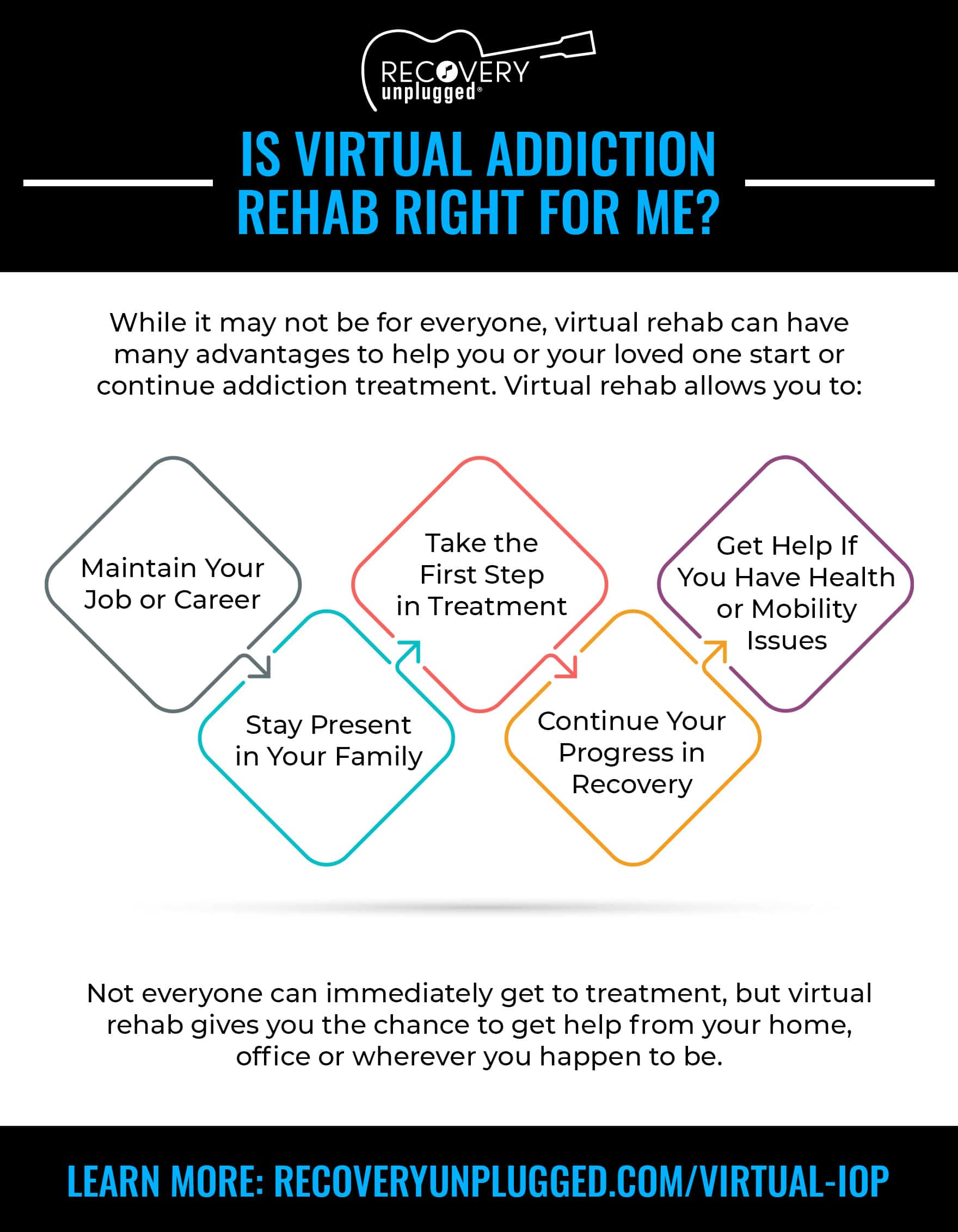The COVID-19 pandemic has forced us to adapt to living more and more of our lives virtually, and this often includes how we access medical care. Even before the pandemic, however, many people had trouble actually getting to a physical location to receive addiction treatment, whether they were in an inpatient or outpatient program.
If you or someone you care about is struggling with substance use disorder (SUD), but you can’t immediately access in-person treatment, virtual rehab may be the right choice for you. Although each person’s addiction treatment journey is different, virtual rehab for addiction may offer the flexibility you need without sacrificing the quality of care.

5 Advantages of Virtual Rehab
There are many factors that prevent people from getting treatment in person, especially in a time when social distancing has become increasingly important. Virtual rehab offers many advantages that can help navigate these challenges. Some of the primary benefits of virtual rehab include:
Staying Close to Your Family
Addiction affects everyone, including parents and caretakers of young children. Many who need treatment feel like they must make a choice between keeping their family together and getting the help they need for their substance use disorder. Virtual rehab allows you to get help while still being able to maintain your family obligations.
Maintaining Your Career
Professional anxiety and dysfunction are cornerstones of alcohol and drug abuse. On the one hand, it can be challenging to achieve professional stability when struggling with a substance use disorder; on the other, taking the time to go to treatment can cause anxiety and make you feel like you’re missing out on something, falling behind, or may be terminated for absence. Virtual rehab allows you to get treatment from your home after work hours.
Protecting Your Medical and Mental Health
Whether you’re immunocompromised, struggling with mobility issues, are diagnosed with chronic disease, or struggling with mental health issues that make it hard to get treatment in person, virtual rehab helps you address the behavioral aspects of your substance from your own home or office.
A Good First Step
Virtual rehab can also be a springboard to in-person care. It allows you to become acquainted with the principles of your program and the recovery process in general. It can help you become comfortable with asking for help and more receptive to subsequent care as you go forward.
A Good Next Step
Remote or virtual rehab can also be a good way to build on foundational treatment if you’ve already been in a residential or outpatient program. It keeps you connected to your therapists and engaged in treatment while transitioning to a life in long-term recovery.
Virtual rehab programs can also provide coordination with detox and withdrawal management services and may be covered by insurance, but coverage can vary depending on the insurance provider and the specific program.
Virtual IOP Treatment at Recovery Unplugged
Recovery Unplugged offers virtual intensive outpatient (IOP) options in Florida, Texas, Virginia, and Tennessee. No matter where you live within any of these states, you can take the first step toward recovery without stepping foot outside your door. Get help from our compassionate and dedicated therapists no matter where you are. Contact our admissions staff to learn more about if virtual IOP is right for you and to get started.

























